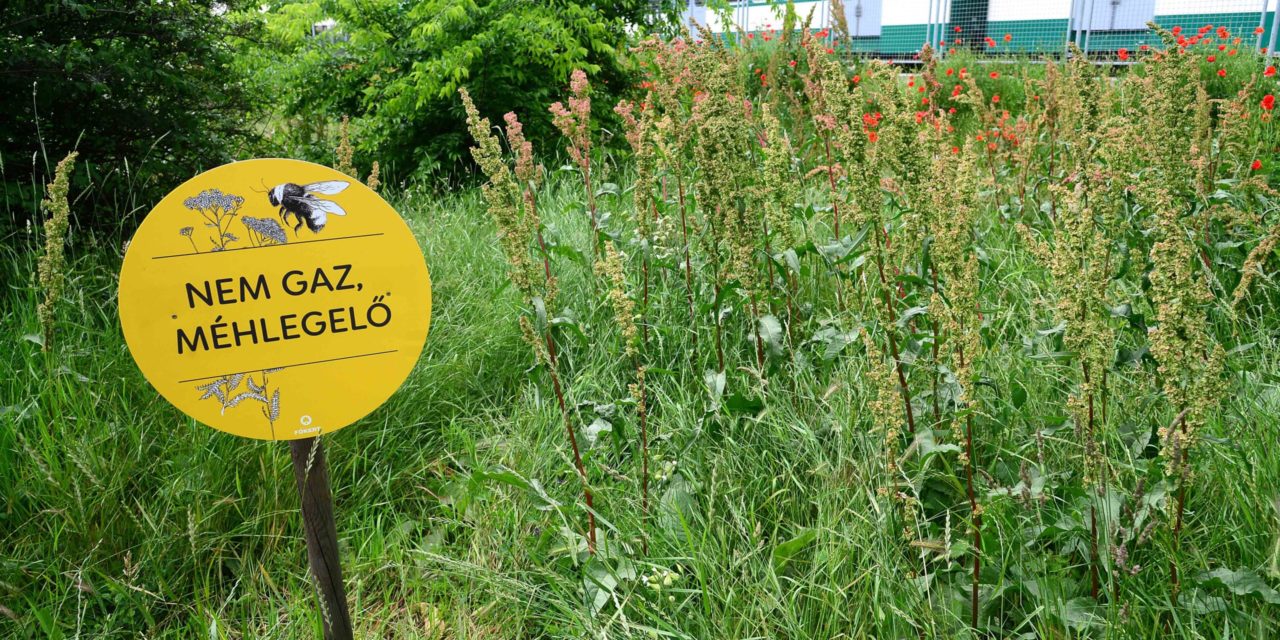With the arrival of spring, weeds have multiplied again in Budapest, but the residents of the city cannot expect these areas to be cleared this year either, the weather or the lack of money will probably be the refuge of the left in this regard. Magyar Hírlap writes.
During the past year, the so-called bee pastures appeared all over Budapest under the care of the capital and MŐKERT, within the framework of the Wild Flowering Budapest program. The initiative has been launched in countless large European cities in recent years, but while these are well-separated, carefully regulated areas in the western cities, in the capital city Mayor Gergely Karácsony and the city's left-wing leadership seem to apostrophize every rampant weedy area as a bee pasture.
As a result of this, it was reported in the press last year that although the areas to be mowed decreased, the costs spent on this increased. A significant part of the city's residents were also not thrilled by the fact that where they used to walk their dogs or have a picnic with a blanket, now they cannot do so because of the chest-deep weeds, in which there is no sign of flowers.
Bee pastures in other big cities are made with special flower seed mixes that pollinators like best. The area is then carefully watered, cared for, and mowed at certain – longer – intervals. This is what can be read about the project on the FőKERT website: without knowing the reasons, the urban community may accuse the park maintainers of "indifference", "neglect" or even "undemanding". The formation of a truly beautiful meadow with colorful flowers and diverse wildlife is a slow, multi-year process, so the areas included in the program will not necessarily be "spectacular" this year (or even next year), since the effects of the previous regular mowing must be left behind.
Thus, the capital city chose the method of creating the bee pastures by allowing the vegetation to grow freely, and after years the area will bloom. The opposite of this happened last year as well, when Sándor Bardóczi, Budapest's head gardener, apologized in a Facebook post for the unmown weeds. He wrote: “When we embarked on the wildflower meadow programme, we had no idea that the weather would not be on our side. In other words, we knew the risk, but such is the preoccupation with plants: people plan, the weather decides." Due to the heavy rains, the MAIN GARDEN missed mowing.
In addition to blaming the greening efforts and the weather, Deputy Mayor Gábor Kerpel-Fronius highlighted another reason behind the unkempt green spaces, and this is the usual mantra: lack of money. In his post, Kerpel stated that FŐKERT does not have enough money to perform its basic tasks either.
The question of money will probably come up this year in connection with the unmown districts, since the left wing adopted the capital budget in an unprecedented way with a deficit of 50 billion, and they will want to make up for it with a loan. While in its communications the left-wing rants about the bleeding of Budapest and its near-bankruptcy situation, the capital has just now announced a competition for community ideas. They would give between three and ten million forints to the person who comes up with a "great" idea on how to spruce up Budapest's public spaces. Not for keeping public spaces clean, but for a "stress-relieving howling at the end of your street" program, innovative ideas are welcome.
2022plus: Brilliant! You can do anything this way, you just have to find the "right" name for it. For example, we could recommend stopping bus and tram transport, which would save a lot of money (more will be left over to pay the army of consultants), and the campaign could be called the "Better on foot" campaign. Or public lighting can also be eliminated, say for the "Bed to bed earlier, it's healthier" campaign. Not a single penny should be spent on the rehabilitation of the buildings either, you just have to call doing nothing the "For Monumental Budapest" movement.
But let's not continue, because knowing the very operative Budapest slep (which only excels in names), these ideas will be adopted.
The question remains, of course, whether a single bee has ever visited the pastures of Karácsony, but that is really beside the point. The main thing is that even with the missed mowing, the town hall bees can harvest a lot.
Source: Magyar Hírlap
(Header image: Ripost)













